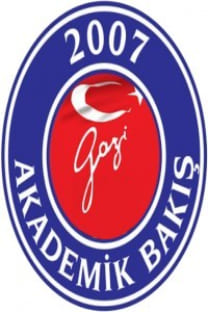Birinci Dünya Savaşı'nda Osmanlı Jeopolitiğinin Rolü
Rolü Role of the Ottoman Geopolitics During the First World War
___
- BANKS Arthur, A Military Atlas of the First World War, Leo Cooper, Barnsley 1998. BON Gustav Le, I. Dünya Savaşından Alınan Psikolojik Dersler, (çev: Mehmet Demi- rezer), Ufuk Yayınları, İstanbul 1999. DEDEOĞLU Beril, Uluslararası Güvenlik Ve Strateji, Yeniyüzyıl Yayınları, İstan- bul 2008. DELBRÜCK Hans, (ed. Arden Bucholz), Delbrücks Modern Military History, Univer- sity of Nebraska Press, Lincoln 1997. ERICKSON Edward J., I. Dünya Savaşında Osmanlı, (çev: Sare Levin Atalay), Tİ- MAŞ, İstanbul 2011. GILBERT Martin, First World War, Henry Holt, New York 1994. HAYNTHORNTHWAITE Philip J., The World War One Source Book, Arms and Armo- ur Press, London 1994. LEWIS Jon E., The Mammoth Book of Modern Battles, Constable & Robinson Press, London 2009. MARSHALL S.L.A., The American Heritage History of World War I, Bonanza Books, New York 1982. MORGENTHAU Hans J., Uluslararası Politika Cilt.I, (çev:Baskın Oran ve Ünsal Os- kay), Türk Siyasi İlimler Derneği Yayınları, Ankara 1970. RENOUVIN Pierre, 1. Dünya Savaşı 1914-1918, (çev: Adnan Cemgil), Altın Kitap- lar, 3. Baskı, İstanbul 1982. TEZKAN Yılmaz, M. Murat Taşar, Dünden Bugüne Jeopolitik, Ülke Kitapları, İstan- bul 2002. WESTWELL Ian, The Complete Illustrated History of World War I, Lorenz Books, Lon- don 2008. WINTER Jay vd., I. Dünya Savaşı Ve 20. Yüzyıl, (çev: Tansel Demirel), Türkiye İş Bankası Kültür Yayınları, İstanbul 2012.
- ISSN: 1307-9778
- Yayın Aralığı: 2
- Başlangıç: 2007
- Yayıncı: Hale Şıvgın
Kurumlar Yoluyla Barış: Woodrow Wilson ve Paris Barış Konferansı
1915 Ermeni Tehcir Kanunu ve Almanya’nın Etkisi
Kıbrıs’ta Kurulmak İstenen Yeni Sistemde ‘Geçici Dönem’ ile İlgili Düzenlemeler ve Özellikleri
Fatin Rüştü Zorlu’nun Siyasi Mücadelesi (Mayıs 1954-Mayıs 1960)
Birinci Dünya Savaşı ve Uluslararası İlişkilerde İdealizmin Yükselişi
Günümüz Özbek Hikâyelerinden İkisinden Hareketle Özbek Hikâye Kahramanlarında “Yeni İnsan”ın İzleri
Birinci Dünya Savaşı'nda Osmanlı Jeopolitiğinin Rolü
Fatin Rüştü Zorlu'nun Siyasi Mücadelesi (Mayıs 1954-Mayıs 1960)
